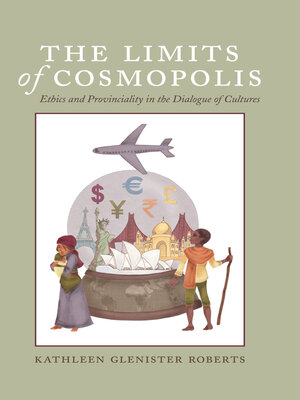The Limits of Cosmopolis
ebook ∣ Ethics and Provinciality in the Dialogue of Cultures · Dresden Philosophy of Technology Studies / Dresdner Studien Zur Philosophie Der Technologie
By Thomas K. Nakayama

Sign up to save your library
With an OverDrive account, you can save your favorite libraries for at-a-glance information about availability. Find out more about OverDrive accounts.
Find this title in Libby, the library reading app by OverDrive.



Search for a digital library with this title
Title found at these libraries:
| Library Name | Distance |
|---|---|
| Loading... |
This book is concerned with cosmopolitanism – a privileged notion of «world citizenship» – and whether or not a cosmopolitan position is conducive to human flourishing when its preoccupation is aesthetic.
The Limits of Cosmopolis addresses the question of how human life is organized: Is it possible to be a «citizen of the world»? Is there a difference between avowing that identity for oneself and morally and ethically making a commitment to others? What are the implications for communication – for a real dialogue of cultures?
Because the identity claim to cosmopolitanism brings particular challenges to intercultural dialogue, the author argues that alternative routes to transnational human rights – to moral and ethical commitment and communication – are crucial. This book is interested in those alternative routes, in a more just organization of human life. It considers the ways in which a «cosmopolitan identity» may exacerbate intercultural conflicts rather than alleviating them as well as exploring its implications for intercultural interactions.
The Limits of Cosmopolis addresses the question of how human life is organized: Is it possible to be a «citizen of the world»? Is there a difference between avowing that identity for oneself and morally and ethically making a commitment to others? What are the implications for communication – for a real dialogue of cultures?
Because the identity claim to cosmopolitanism brings particular challenges to intercultural dialogue, the author argues that alternative routes to transnational human rights – to moral and ethical commitment and communication – are crucial. This book is interested in those alternative routes, in a more just organization of human life. It considers the ways in which a «cosmopolitan identity» may exacerbate intercultural conflicts rather than alleviating them as well as exploring its implications for intercultural interactions.







